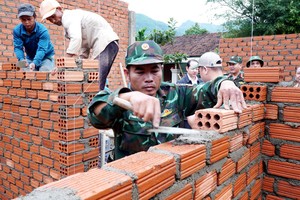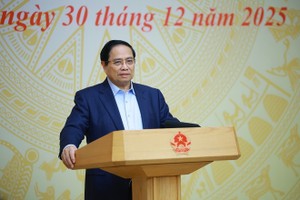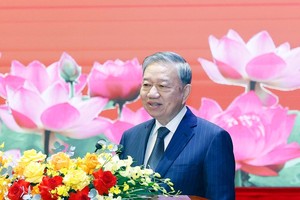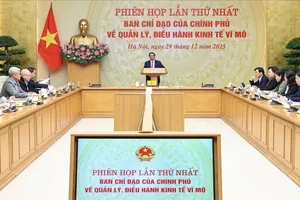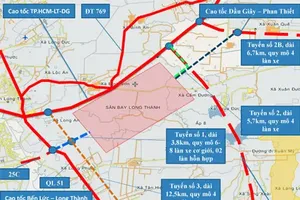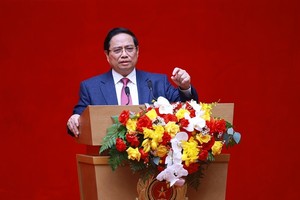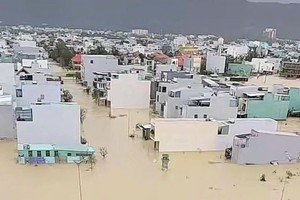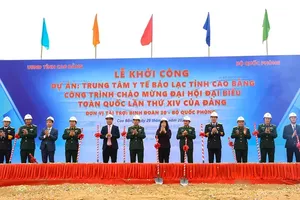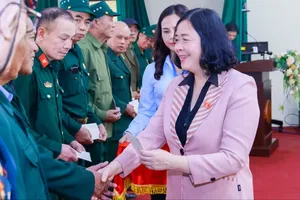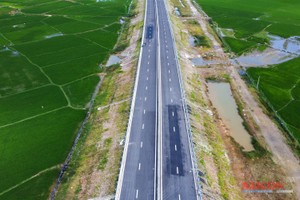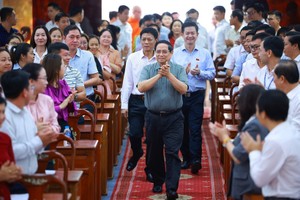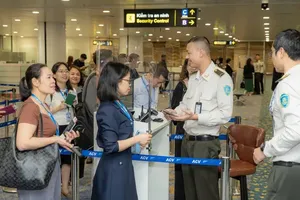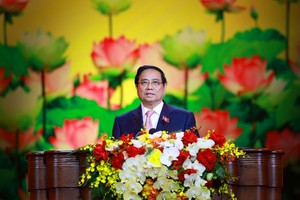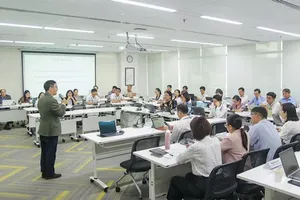The fight against corruption has been strengthened but still falls short of expectations, the national anti-corruption agency said, calling on concerned agencies to improve the laws and their own efficiency to achieve better results.
It made the statement at a national conference held in Hanoi January 28 to review last year’s performance and discuss the tasks for 2010. The conference was chaired by standing member of the Secretariat of the Party Central Committee, Truong Tan Sang, and Deputy Prime Minister Truong Vinh Trong, who is also deputy head of the Central Steering Board for Anti-Corruption.
“After three years of implementation of the 10th Party Central Committee’s resolution on strengthening the fight against graft, the incidence of corruption has reduced in public and land administration agencies, ODA use, budgetary spending, and national programs,” Mr. Sang said.
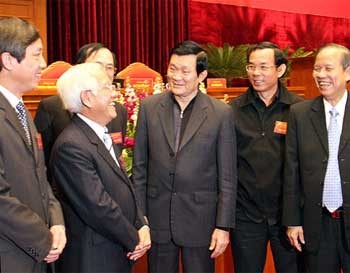
After the Government announced the National Strategy Against Corruption and President Nguyen Minh Triet ratified the UN Convention Against Corruption on June 30 last year, 30 ministries and Government agencies and 59 provinces and centrally-administered cities announced their own plans to combat corruption, the committee said in a report.
In 2009 ministries and other central agencies carried out more than 3,000 internal inspections, uncovering 202 violations resulting in the misuse of VND16.5 billion (US$893,300). They took disciplinary action against 187 officials and brought criminal charges against 13 others, the report said.
Cities and provinces carried out 7,066 inspections, finding 379 violations involving more than VND50.5 billion by 442 officials.
However, the problem still remains a serious and pressing one, Vu Tien Chien, chief of the committee’s office, said.
But many serious corruption cases were handled tardily due to the limited capabilities of investigators and ineffective coordination between agencies, he commented.
Besides, in several provinces and cities, the number of corruption cases uncovered appeared to be much smaller than the actual number, with the number of agency heads punished for their responsibility being even less, he complained.
The leaders of Hanoi and Ho Chi Minh City, Nguyen The Thao and Le Hoang Quan, agreed there is a need for more personnel with the capability to take on corruption, especially in the two cities’ land and housing management agencies.
“We are trying to enhance awareness among civil servants and the public about the importance of fighting corruption, with focus on its prevention,” Mr. Quan said.
Pham Huu Bong, standing deputy chairman of the Vietnam War Veteran Association, called for greater focus on preventing corruption and squander in areas like foreign trade and land administration.
Besides, buying positions of power and diplomas has become a widespread evil, he added.
Mai Quoc Binh, deputy chief inspector of the Government, blamed the ineffective legal system, poor coordination between various agencies, and the irresponsibility of the heads of many agencies for the incidence of corruption.
Mr. Sang called for greater efforts this year to prevent corruption, especially in areas like taxation, customs, mining, construction, and public recruitment.
Anti-corruption regulations must be strengthened while whistle-blowers should be protected and those contributing to the fight against corruption must be rewarded, he said.
“Since we consider corruption a dangerous crime, those who commit corruption, no matter who they are, must be strictly punished,” he said.

